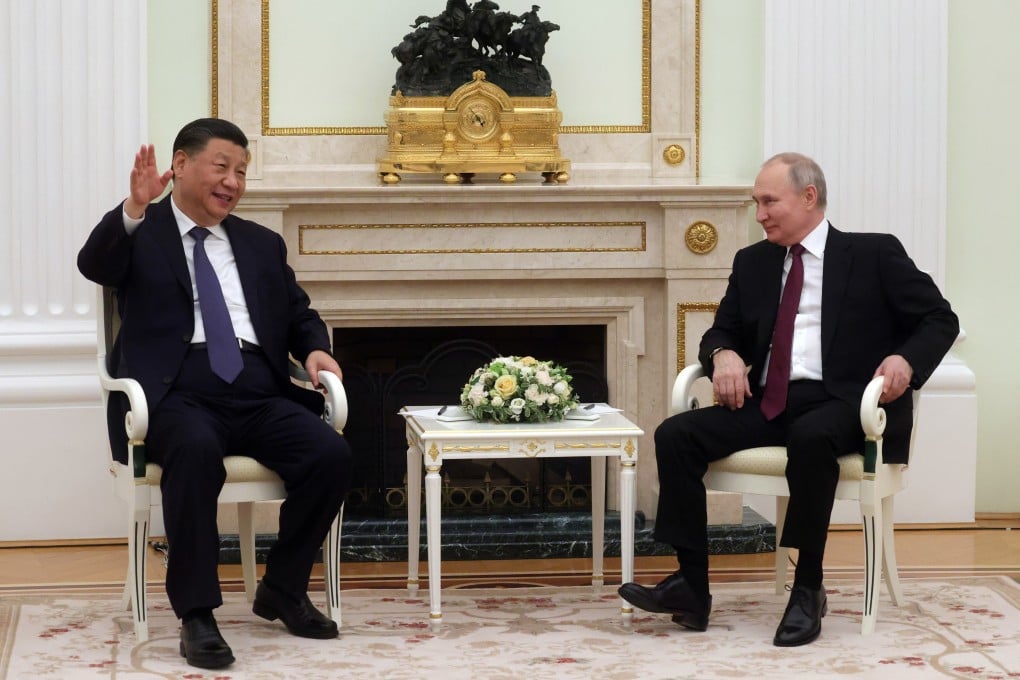Advertisement
Opinion | Xi should use his sway over Putin to push him to the negotiating table with Ukraine
- Politically and economically, Xi’s China is superior to Putin’s Russia in an unequal alliance that has seen growing Russian dependence
- If Xi can craft an exit from war in Europe after the current offensive, China’s geopolitical stock will rise further
Reading Time:3 minutes
Why you can trust SCMP
54

In the autumn of 1949, two months after Mao Zedong formed the People’s Republic of China, he made his first major overseas visit, to Russia. Arriving in Moscow, Mao expected a warm welcome as a fellow communist leader, equal to his host, Joseph Stalin. That was not to be.
Advertisement
The two wary communists viewed each other with suspicion. Stalin had originally backed Chiang Kai-shek; then, when the nationalists began losing, he switched to support Mao. Although Stalin saw Mao as weak, he also viewed him as a competitor for the position of leader of global communism. Stalin made his view of Mao as an underling very clear.
But China’s leaders play a long game, and the tables would turn. The dynamics of geopolitical, economic and strategic power are now decisively in China’s favour and Russia is the supplicant, its president and the nation shaken by a failed coup orchestrated by Yevgeny Prigozhin and his Wagner Group mercenaries on June 24.
Subsequent attempts to show that President Vladimir Putin remains fully in control only underscore his weakness and illuminate troubles within the Russian military command.
Today, Chinese President Xi Jinping holds the upper hand with Russia, economically and diplomatically.
Advertisement
Xi has chosen to throw his political and economic weight behind Russia. He has sent clear messages of support since February 2022, when the Ukraine war began. Indeed, his first post-pandemic foreign visit in March this year was to Moscow, where he and Putin committed to deepening the alliance between the two countries.

Advertisement

